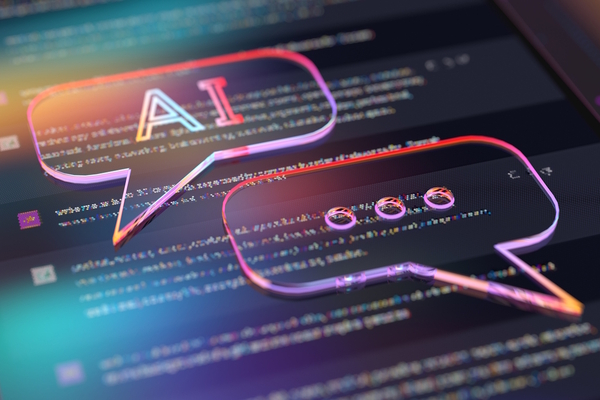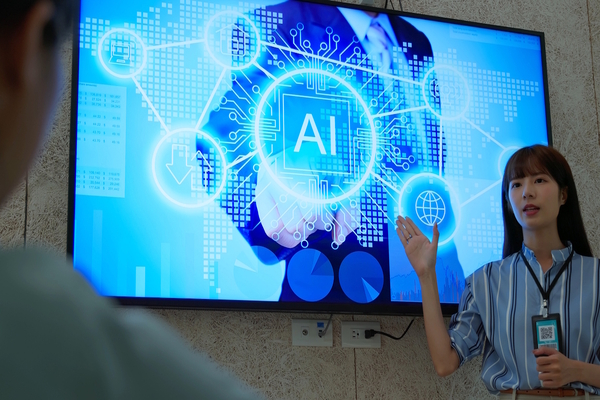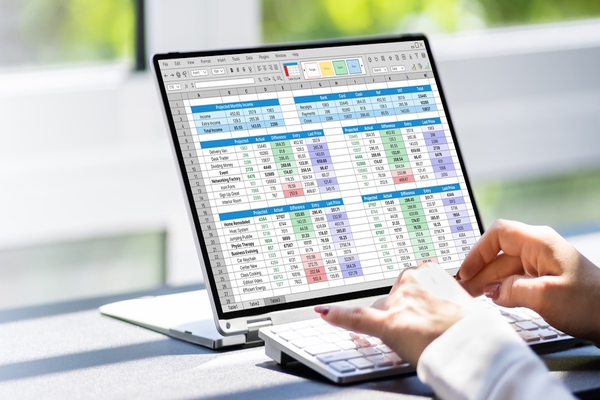How business technology is transforming accountancy

Hasib Howlader at Howlader and Co. describes the potential opportunities that digital technologies including AI, blockchain and cloud computing have for the accountancy profession
The view of accounting as exhausting and tedious bookkeeping is still prevalent in the eyes of the public. Many still associate the profession with endless hours of staring at pages upon pages of numbers and financial data.
However, this notion of accounting is archaic and doesn’t match the profession’s current state.
For the past decade, and especially in the last couple of years, accounting has evolved into a dynamic field with exciting prospects. Technological advances have revolutionised the profession and the digital trends observed before the pandemic were accelerated even further due to the remote work model and the need for remote access to data.
Accounting is an essential part of a successful business operation. Nonetheless, local tax and regulation rules frequently call for the assistance of expert professionals. Small-to-medium businesses can now obtain exceptional accounting services, even if they don’t have a big budget for this.
Furthermore, as businesses become more globalised, having an accountant who understands new business tech and international rules is more important than ever.
AI implementation
Not so long ago, experts were predicting that AI (artificial intelligence) technologies would spell the end of the accounting profession as automated tools would be sophisticated enough to take over completely. The reality, however, is different.
While AI-powered software tools have indeed been incorporated into the daily activities of accountants, they operate in a support role. AI tools can automate routine processes leading to reduced costs, improved efficiency, and lower chances of human errors.
AI has also proven its ability to analyse large amounts of raw data. Freed from the need to perform this analysis, accountants can instead focus their efforts on strategic tasks that require creative thinking, collaboration and ingenuity, work aspects that may not always be traditionally associated with accounting.
Indeed, accountants can utilise the insights gleaned from the data delivered by AI tools to drive further innovation and establish the basis of business management plans aimed at facilitating growth, sustainability, and progress.
Blockchains and cryptocurrencies
Although blockchain technology is still considered in its early stages, glimpses of its potential integration into various sectors and fields can already be identified. When it comes to accounting specifically, this technology is believed to be able to drive further efficiencies like recording transactions and financial statement auditing.
In addition, blockchain will become essential for the tracking of digital, and indeed some physical, assets. By allowing the creation of a unique identifier attached to a specific asset, this technology allows the asset to be tracked for the duration of its lifetime, from when it is created to when it is finally disposed of.
The emergence of new concepts such as NFTs (non-fungible tokens) also presents new accounting challenges in terms of their proper listing on the balance sheets.
In addition, the profession needs to address the changes in regulation that this new technology will inevitably bring.
Cloud-based solutions
Due to the coronavirus pandemic, whole industry sectors had to switch to a remote work model. Accounting firms were not an exception, and they had to find solutions for several crucial challenges quickly.
Accountants handle highly sensitive and confidential information belonging to their clients. They needed a secure and reliable access channel to client data, documents, together with efficient tools for collaboration as a substitute for being physically present in the office. Cloud computing facilitates this.
In addition, cloud computing helps organisations maintain their operation effectiveness in the face of a network breach or a natural calamity. Establishing an automated backup for confidential client data whereby it is uploaded to cloud storage significantly boosts resilience should the primary copy, held elsewhere, become compromised.
Like nearly all aspects of our society, the future of accounting is being determined by advances in technology. Instead of being supplanted by automated software tools, accountants are likely to find increased freedom, becoming less constrained when it comes to decision-making and looking for creative solutions.
Accounting professionals who recognise the potential of these technologies and who invest in the necessary tools and training to expand their skillset will find themselves ahead of the curve.
Hasib Howlader is a director at Howlader & Co.
Main image courtesy of iStockPhoto.com

Business Reporter Team
Most Viewed
Winston House, 3rd Floor, Units 306-309, 2-4 Dollis Park, London, N3 1HF
23-29 Hendon Lane, London, N3 1RT
020 8349 4363
© 2025, Lyonsdown Limited. Business Reporter® is a registered trademark of Lyonsdown Ltd. VAT registration number: 830519543





